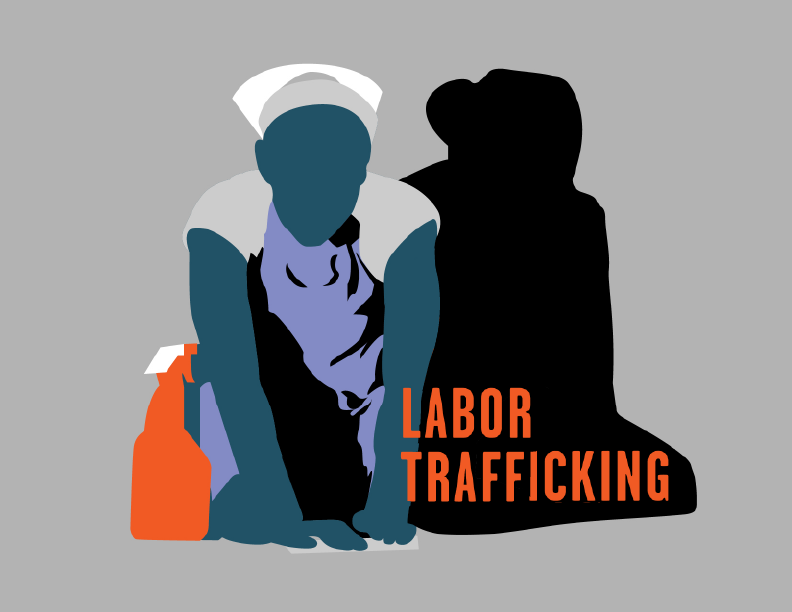After a six month investigation by Utah’s Attorney General Office, three executives of West Bountiful company Rubicon Contractors LLC were arrested on charges of human trafficking.
According to reporting done by KUTV, ABC4 Utah and the Salt Lake Tribune, the executives were accused of recruiting people from Mexico to come work for Rubicon. The immigrants were subjected to inhumane conditions, including low pay, no heat in housing which Rubicon had provided and difficult work hours.
On Nov. 29, about a week after their arrest, the executives were released on bail. While the case is ongoing, Rubicon’s attorney Skye Lazaro has said the company believes they have followed all legal requirements and that the executives will be absolved of charges.
However, whether Rubicon executives broke the law or not, this case calls up the centuries-long discussion of business ethics and raises the question of whether or not businesses should hold themselves to a certain code of values, said University of Utah ethics professor Abe Bakhsheshy.
Bakhsheshy is the director of the U’s Daniels Fund Ethics Initiative — a business school curriculum with classes focused on teaching students the value of ethics in the business world.
Bakhsheshy said he can’t comment specifically on Rubicon because the case is still open, but that any business committed to staying ethical typically avoids the charges that Rubicon is now facing.
“Making a judgement about Rubicon is not right at the present time,” he said. “However, I will say that those companies that pride themselves on doing what is morally and ethically right have always been incredibly successful and long-standing.”
Bakhsheshy said the U’s ethics initiative teaches students why following ethics in the business world is important for more practical reasons than simply “feeling good.”
“People sometimes think that if it is legal, it must be ethical,” he said. “They are wrong. There was a time when businesses polluted air quality, polluted water resources, etc. and there were no laws against that.”
While Rubicon claims they stayed within the bounds of the law, Bakhsheshy said that might not be good enough. He said that staying ethical and moral in business conduct is essential in creating a strong business, and that failure to do so may create future legal problems.
“My remark is based on the assumption that the Attorney General’s office is correct, but I don’t know until they have been found guilty under these indictments,” said Harris Sondak, a professor of business ethics at the U’s David Eccles School of Business. “But the conduct that’s been alleged seems quite reprehensible. It seems to me that abiding by the law is the minimum and that one might have a duty and an obligation to go further than that.”
Sondak said business ethics is a field which takes into account the moral purposes of a business and explains how the understanding of certain ethical codes flows down into the operational decisions of a company. He said the failure of a business often results from the absence of an ethical code in leadership.
“There’s a lot of judgement that goes on in social life and in business,” he said. “The question of making those judgements well with wisdom and compassion is always an issue. There’s a lot of room in the law, but business leaders have to make a decision, because their moral purposes are going to have a powerful impact.”





Harvey • Aug 5, 2024 at 3:16 pm
Warrants in Davis County labor trafficking investigation under scrutiny…. KSL dot com Article.
Judge Rita Cornish Ruling(s):
“The defendants have carried their burden of making a substantial showing that (Utah attorney general) agent (Michael) Jeter’s statements that the defendants withheld or denied H-2B visa workers access to their immigration documents were knowingly false or at a minimum made with a reckless disregard for the truth,” “The defendants have also made a sufficient proffer of the evidence that agent Jeter’s statements that alleged victims were threatened with deportation were false…” “that he made material omissions that changed the meaning of those statements …”
Cornish noted that a Franks hearing is granted for “deliberate falsehood or reckless disregard of the truth” or when the investigating officer “intentionally or recklessly omitted facts,” and not because of “innocent mistakes.”
She said the affidavits paints a picture of “widespread labor trafficking across multiple domains” of Rubicon and its partners. “However, it is possible, perhaps even probable given the defendant’s proffer of evidence, that the affidavit is replete with false and misleading statements on many of these main points, and that the material omissions continue to foster a misleading overall picture of the situation,”